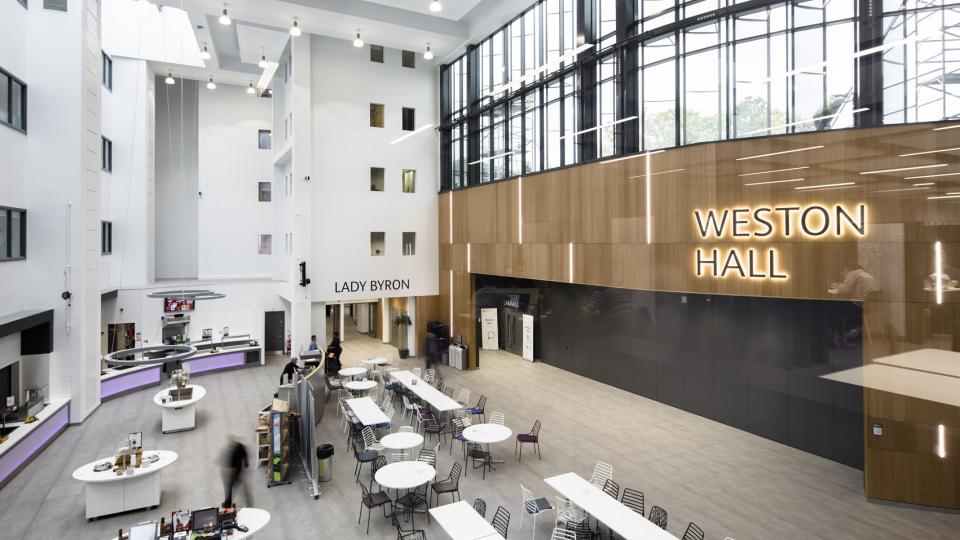
Careers advice
and your next steps
Intro
Find out more about the services available to help you plan your next career steps and gain experience.
Having a clear career plan is an essential part of getting the job you want and our dedicated team of careers consultants are here to help. They are available to discuss how to make a career plan, explain the job application process and give you expert careers advice.
Book an appointment through the Student Hub or email careers@uwl.ac.uk for more information.
Jump to each section:
Career planning
Career planning is like making a roadmap for your work life. It involves thinking about what you want to do, setting goals to get there, and figuring out the steps to reach those goals.
Explore:
Further information:
-
Career decision-making
Career decision-making involves evaluating various factors to determine the best path for one's professional future. This process often includes considering personal interests, skills, values, and goals, as well as external factors such as job market trends, industry demand, and potential opportunities for advancement. Effective career decision-making may also involve gathering information, exploring different options through research or experience, seeking advice from mentors or career counsellors, and weighing the potential risks and benefits of different choices. Ultimately, the goal is to make informed decisions that align with one's strengths, aspirations, and overall life objectives.
In summary:
- Consider where you are now
- Decide what you want to do
- Plan on how to get there
- Take action
- Review progress
-
Self awareness
Self-awareness is your ability to perceive and understand the things that make you who you are as an individual, this includes identifying your strengths, weaknesses, interests, and values and how these fit or affect your career goals.
It is an ongoing process that evolves as you gain new experiences and insights. Becoming more self-aware helps you to make more intentional career choices, find areas for improvement and build a career in line with your values and aspirations.
Explore:
Further information:
- Watch Effective technique to practice self-awareness YouTube video
- Visit the Indeed website and read a guide on the importance of self-awareness in leadership.
- Visit the Student Hub - my skills
-
Developing your employability skills
Developing relevant employability skills to offer potential employers is a great advantage in the graduate job market. Known also as transferable or soft skills, they are highly valued by employers across all industries. Communication, leadership, flexibility, problem-solving, creativity, resilience, and positivity are examples of key employability skills many employers seek. You may have already started developing some of these during your studies and extracurricular activities and others while doing part-time work or certain hobbies.
Understand your current skills:
- Reflect on your education and work experiences.
- Think about the skills you’ve gained in daily life.
- Talk to people who know you well outside of work for a different perspective.
- Think about what you do in your current job (if applicable).
- Write down a list of your strengths and skills.
If you need help in this area, please book an appointment with a Careers consultant on the Student Hub.
-
Researching career options
To research career options, begin by figuring out your interests, skills and values. Look into different industries, sectors and job opportunities, then talk to people already working in those fields. Consider what education or training you might need and check out jobs within your chosen industry to see what’s in demand. Lastly, get hands-on experience through internships, placements or volunteering and stay open to new opportunities as you explore your options.
- Explore your career options (TargetJobs)
- Explore Prospects' job profiles
-
Researching sectors and employers
To research sectors and employers effectively, first identify your interests and goals. Gather general information about sectors from industry reports (eg MarketLine Advantage) and news sources. Then delve into specific companies' details like products and services, financial performance, company culture, leadership etc through websites and databases. Use online resources such as LinkedIn, Indeed and Vault for company insights and attend industry events to network and gain insider perspectives. Remember, to stay updated on sector trends and evaluate opportunities in line with your interests, skills, values and career goals.
Explore sectors and potential employers:
-
Values
Values are the core beliefs that guide and help us make choices. They help us stay true to ourselves and make decisions that are important to us. We all have a set of values we know are important to us – they motivate and inspire us and may change depending on our life stages.
Use the following exercises to start exploring your values:
- Consider the following categories: people, job roles, responsibilities and duties, employers, and work environments. Write down the three things that are most important to you in each category. For example: in the job roles category, the three most important things to you may be; job security, a good salary and a good work/life balance. These represent your values.
- Your values are often shaped by your experiences, the people and society around you. Think about your most negative and positive experiences during work and/or education. How did they make your feel and why? Have these experiences influenced what is important to you? If so, how?
To learn and explore more about your values visit the building self-awareness – recognising your values Student Hub page.
What can I do with my degree?
Explore documents categorised by our schools and colleges to understand better what you can do with your degree after graduation:
- The Claude Littner Business School - what can I do with my degree? (.docx, 56.83kb)
- College of Nursing, Midwifery and Healthcare - what can I do with my degree? (.docx, 74.96kb)
- London College of Music - what can I do with my degree? (.docx, 100.33kb)
- London School of Film, Media and Design - what can I do with my degree? (.docx, 130.76kb)
- London Geller College of Hospitality and Tourism - what can I do with my degree? (.docx, 66.14kb)
- School of Law - what can I do with my degree? (.docx, 53.34kb)
- School of Computing and Engineering - what can I do with my degree? (.docx, 91.64kb)
- School of Human and Social Sciences - what can I do with my degree? (.docx, 59.91kb)
- School of Medicine and Biosciences - what can I do with my degree? (.docx, 48.09kb)
Talent Bank
The UWL Talent Bank is the university’s internal recruitment service for all part-time and temporary opportunities offered to current UWL students and graduates (up to 2 years after graduation) by schools, colleges and central services.
For further information email talentbank@uwl.ac.uk and find out more via the Student Hub.
Placements and internships
Types of work experience supported by UWL include work placements (Prospects website) and Internships (Prospects website). While a Placement can last up to a semester or a whole year and will be part of an undergraduate programme. The purpose of an internship is to gain relevant skills and could last from a few weeks to up to 6 months, be full or part-time and take place during the summer months or after graduation.
- Visit RateMyPlacement, or Milkround for current internships. You can apply to do an internship anywhere in the UK or abroad.
Virtual Internships
A virtual internship (Prospects website) is work experience completed remotely rather than in-person. These are now becoming popular, so if you are interested in gaining work experience this way you can check for roles in organisations like Bright Network, The Intern Group and Virtual Internships.
The UWL Placement team offer 3 types of work experience:
- Undergraduate work experience
- Undergraduate/placement internship
- Postgraduate Internship
Find out more on our student guide to work experience page. For further queries email Placements@uwl.ac.uk
Volunteering
Volunteering has the power to impact your community, boost your sense of wellbeing and launch your career. Discover the benefits of engaging in Volunteering at UWL.
Visit our volunteering events and stories page for current volunteering activities and events during the year, or check out our Volunteering Team Instagram page.
Graduate Talent Bank
This is a dedicated recruitment support service provided to recent UWL graduates by connecting them with employers and providing full support through to the point of employment.
- For more information, please email gtb@uwl.ac.uk
Sports and societies
Getting involved with UWL sports clubs or societies offers an invaluable opportunity to develop transferable skills (indeed website) that will boost your CV as well as your future career.
Some notable transferable skills sought by employers include leadership, time management, teamwork, communication, digital literacy negotiation, creativity, critical thinking and problem-solving.
For more information on skills development book an appointment with your School Careers Consultant on the Student Hub.
Get in touch and book an appointment
You can book or come along to one of the following:
- Drop-Ins: a quick and immediate face-to-face 15-minute support drop-in, providing information and general advice.
- Career appointments: 30 minutes to 1 hour one-to-one, online or face-to-face booked meetings with your school careers consultant for help with CVs, cover letters, applications and anything careers related.
Book an appointment through the Student Hub or email careers@uwl.ac.uk for more information.













